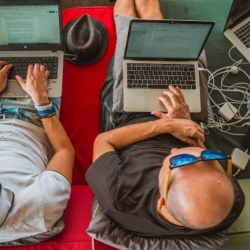August 4, 2020
Boardroom heroes needed to transform working cultures
 Even as the UK starts to open back up following the COVID-19 enforced lockdown, there are still many unanswered questions about how almost every aspect of our lives will be impacted. What is certain though, is that we will continue to see a paradigm shift take place across all areas of the workplace. Employers must ensure they have the right measures and policies in place to deal with the transformations that have taken place across the UK’s labour market throughout the lockdown period. This is crucial, as only those who have a strong workplace culture will succeed in the post-pandemic world. (more…)
Even as the UK starts to open back up following the COVID-19 enforced lockdown, there are still many unanswered questions about how almost every aspect of our lives will be impacted. What is certain though, is that we will continue to see a paradigm shift take place across all areas of the workplace. Employers must ensure they have the right measures and policies in place to deal with the transformations that have taken place across the UK’s labour market throughout the lockdown period. This is crucial, as only those who have a strong workplace culture will succeed in the post-pandemic world. (more…)









 According to research conducted by conference call provider
According to research conducted by conference call provider 










 Flexible working can help employees manage mental illness and keep them in the workforce during difficult life events, a
Flexible working can help employees manage mental illness and keep them in the workforce during difficult life events, a 











August 6, 2020
Cycling might be about to change our lives and offices permanently
by Eugene Tavyev • Cities, Comment, Workplace design